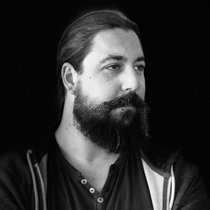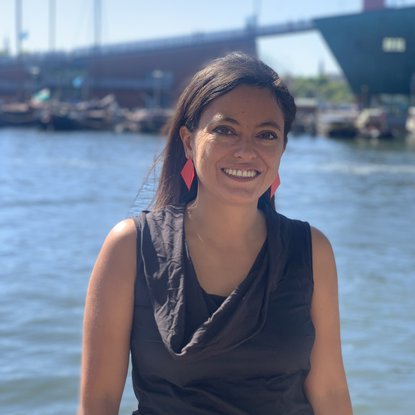The city of tomorrow will be a circular city: the building blocks of which will be transdisciplinary and intersectional in nature. Educating students for this future requires collaboration, and for AMS Institute, Amsterdam University of the Arts (AHK), and CODAM — all neighbors on Amserdam's iconic Marineterrein — collaboration is not just a buzzword: it's a core principle driving impactful initiatives. Their latest initiative is MAKE Biobased: a joint elective where students from the three institutes come together to explore the intersection of design, technology, art, and sustainability.
Carefully crafted by Marlies Boterman (AHK), David Giron (CODAM), and Mariet Sauerwein (AMS Institute), this elective combines the diverse expertise and perspectives of the institutes and is a pivotal outcome of the collaboration between AHK, CODAM and AMS Institute: the Open Knowledge coalition.
A biobased future
Shifting from a traditional linear, fossil-based society to a circular, biobased society will require combined knowledge of digital fabrication, urbanism, design, and biobased materials. This is where MAKE Biobased comes in: students will have hands-on experiences designing with biobased materials and fabrication processes using such materials, such as 3D printing and laser cutting. Students will closely cooperate with fellow students from all three institutes.
“Promoting interdisciplinary collaboration is key. We must actively seek knowledge from different domains and draw inspiration from various educational backgrounds. That's exactly what's happening in the MAKE Biobased course.”
Marlies Boterman, AHK
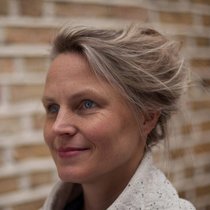
Learning with each other and from each other
Learning from and with each other is paramount. Artists bring creativity and an eye for aesthetics, ensuring that designs are not only functional but also visually appealing. Engineers contribute technical expertise, from structural integrity to material science, ensuring that designs meet practical requirements. Coders leverage computational tools to streamline the fabrication process, optimizing efficiency and precision.
Students gain a deeper understanding of design principles and digital fabrication techniques through peer learning and collaboration. The unique value of MAKE Biobased lies in the diversity of perspectives and learning experiences offered by the three institutes. Students learn from each other and the different teaching approaches and levels of expertise present in the course.
In line with this, topics covered by the MAKE course include:
- Software tools for digital fabrication
- Design for biobased materials with digital fabrication
- 3D paste printing
- Laser cutting
Significantly, the MAKE Biobased course is inherently hands-on. The course will result in students making a birdhouse for specific bird species to be placed on Marineterrein.
“MAKE Biobased provides a unique opportunity for students to work across disciplines and institutions, preparing them for the complex challenges of the future. It's inspiring to see how each student brings their own expertise to the table, enriching the learning experience for everyone involved.”
Mariet Sauerwein
Former Research Fellow at AMS Institute
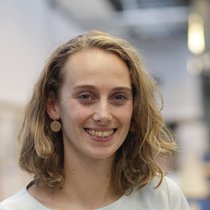
Uniting expertise and fostering collaboration on the Marrineterrain
This initiative of this course is part of a broader effort to foster collaboration among the Open Knowledge coalition. Each institution involved finds its strength within this alliance, contributing to the ecosystem's maturation. It's not just a loose coalition; it's a robust collaboration where each party finds meaning and value. The success of this initiative is driven by genuine enthusiasm and a shared desire to innovate, and an example of the potential that arises when educators unite based on shared content and interests.
It demonstrates the importance and evidence of close collaboration and mutual discovery. It's about harnessing and translating that collective energy into action, learning from the process, and organizing future endeavors. It's a beautiful illustration of burgeoning cooperation, entirely driven by the passion and dedication of the involved educators.
“This initiative underscores the genuine importance and essence of knowledge collaborations. The fact that these colleagues from different institutes organize a course together clearly indicates the need for educators to come together, share knowledge, and collaborate on developing innovative educational programs. It's the result of their initiative and mutual discovery, something we aim to support but ultimately arises from the educators themselves.”
Matthijs ten Berge, Head of Art & Society Development Office, AHK
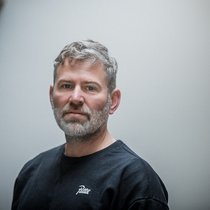
In conclusion, MAKE Biobased represents more than just a course; it's a testament to the power of collaboration and the potential that arises when institutions break down their "brick walls" and work together towards a common goal. Through initiatives like this, we can truly harness our students' collective intelligence and creativity to address the challenges of tomorrow's world.
“In MAKE Biobased, staff from AMS Institute, AHK and CODAM join forces to provide content that no one institution could have provided. Likewise, the students each bring their own experience and skills to the table, thus enabling powerful peer-to-peer learning. I'm looking forward to seeing the beautiful birdhouses that our students will create displayed on the Marineterrein!”
David Giron, Director at CODAM
